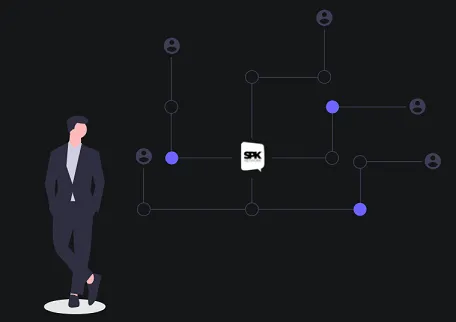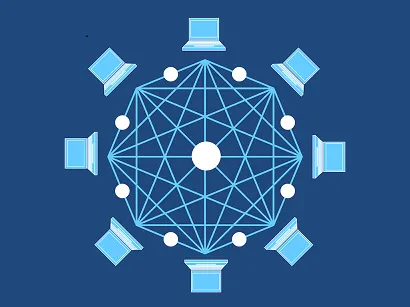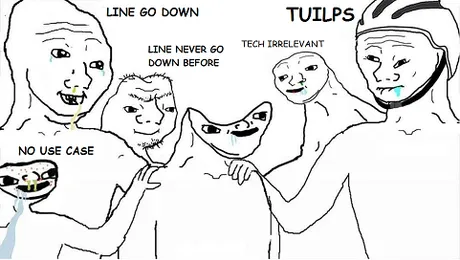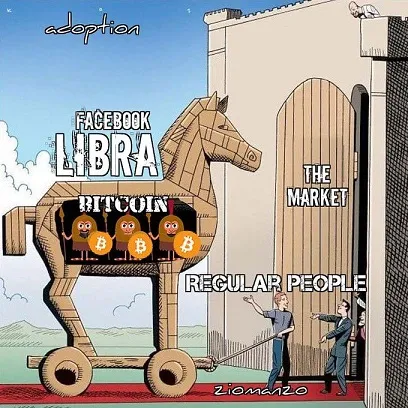
3Speak has been around a while now.
Truth be told I've been ignoring it for a long time. 3Speak is for videos. I don't post videos. I don't watch videos that often either. Therefore I don't care about 3Speak. This is a simple enough equation.
However, this doesn't change the fact that if I did post videos I'd get a lot more attention. People like the simplicity of watching and/or listening to video rather than have to read and digest words on a screen.
When I was first starting out on Hive (even the first year or two) I was actually pretty jealous of people who posted videos to their blog. On the average, a video will simply get more attention and rewards than not. That's just how it is. Back in 2018 before prices had crashed into the mountain people were getting huge payouts on videos that put in way less work than I was.
But this is neither here nor there.
The much more prominent issue now are the incentives that the Speak network brings to the table and if they will be viable in scaling up a system that could very well rival Big Tech ten years down the line. The possibility is there, but there are many ways to fail.
What are the points of failure?
The most obvious one is the shear complexity of the system being built. It is not easy to navigate, and the only way people are actually going to navigate it is if there's a good chunk of money to be made. Luckily crypto has a way of seemingly creating value out of thin air and monetizing things that were previously impossible to monetize. Doesn't matter how complex it is if casual users can navigate the system like it's a WEB2 site and advanced users are getting paid enough to justify the time and effort put in to providing infrastructure.
The other huge point of failure is the exponential inefficiency derived from robust decentralized systems. The cost is massive. Take the top 20 witnesses for example. Imagine if Hive scaled to the size of Facebook. That means AT LEAST 20 people need to be running a Facebook sized server farm, and all those server farms are redundantly storing the exact same data. And this doesn't even account for all the nodes that are outside the top twenty. At a certain point it just becomes absurd and impossible to replace the top 20 that we have, because the barrier to entry would be buying a server farm that costs... what? Like $200M. That's just silly.
When we look at YouTube, something like 100GB get uploaded every MINUTE. That ends up being 268TB per day and 93PB per year. This is obviously absurd amount, and it's very obvious that even YouTube backs up videos in multiple places around the world depending on who is viewing what and however often.
Coming up with a decentralized crypto solution to this is no easy feat. How would it even be possible to redundantly store all that video around the globe in an even more aggressive way than YouTube does it... and still remain profitable? It seems impossible.
So rather than actually try to game theory this all out the naysayers will just say, "No, that's impossible, this project will fail, I have spoken," even though they only gave it like two minutes of thought. Do better, naysayers, you bring nothing to the table.
One of the first things we need to consider here is that a decentralized data-storage network can't even be compared to YouTube, even if the frontend is doing the exact same thing that YouTube does, it isn't the frontend that matters. All the actual money is made and lost on the backend databases that store and upload content.
So yes, a decentralized system is going to be way more inefficient and overall more expensive than YouTube, but also that system's costs are going to be distributed to thousands of nodes controlled by just as many people. One of YouTube's biggest problems was that when it was unprofitable it was costing a single entity millions of dollars in sunk cost. In a decentralized system that might only set individual node runners back a couple hundred dollars depending on the size and power of their nodes.
We already saw this exact thing happen on Steem and Hive. When token price was 10 cents our network was pretty unprofitable. We should have died a dozen times over. If we were a corporation, we would have. In fact, the corporation did die (completely gutted and sold to a vulture capitalist), and yet here we stand. The community will not let their passion die as easily as a corporation would cut their losses and scrap a project because it wasn't profitable for a few years. Again, anyone who thinks they can compare 3SPEAK to something like YouTube doesn't understand what is happening here. It's like comparing Bitcoin to gold. It absolutely does not translate in anyway other than the tiny thread of "value storage" or "video storage". It's like calling the Internet itself a "mailing system". It's ridiculous.

In fact, there are a couple things that would make a decentralized video storage system superior to a centralized one. The first I already talked about. If the network becomes unprofitable these losses are distributed to thousands of separate people rather than some corporate asshat trying to make number go up for his next board meeting. Communities can't get taken out so easily.
Second, it is more difficult to upload data than it is to download data. If a video is stored in 20 places at once the downloader can stream at full speed pretty easily by tapping multiple nodes at the same time and downloading pieces from each one like a torrent.
Third, YouTube doesn't have an underlying currency that they control. The value of the network itself being its own central bank adds an absurd level of value to the protocol. Not only are we our own central banks, but the tools we are building are exponentially more powerful than what central banks can even do. What can a central bank do? Raise and lower interest rates? Crypto can literally do anything we program it to do, and that programming intertwines with governance itself, making it even more valuable if organized correctly.
Forth, decentralized protocols charge a fee to use their services. Unlike WEB2, that provides free service and must figure out to monetize data, WEB3 reverts back to WEB1 (subscription) tactics and charges users directly. The reason why WEB3 can get away with this is because it delegates ownership to the users themselves. The reason why user will want to pay for WEB3 is because the value that they pay is less than the value returned to them via the underlying crypto.
This creates a situation where 3SPEAK automatically limits the amount of storage space it needs. The term "quality content" comes to mind. People will not upload massive videos at high cost unless they think the reward they get back from that action is higher than the cost.
Again, this is another reason why comparing something like this to YouTube is just foolish. Anyone can go onto YouTube right now and upload a video for free. This is a COMPLETELY DIFFERENT business model and scaling solution (ads). Comparing the two models is a complete fool's errand, but we find that pretty much every naysayer of the system will do just that. They have no idea what they are talking about.
Importance of SPK incentives
If this project is still around in ten years... it will simply be absolutely massive, spanning across the entire Internet and known about by half the population of the planet, just like YouTube or Facebook or Twitter or Google or whatever else. This is a really game-changing protocol if it actually ends up working.

But why?
Decentralized technology is not new.
Open source architecture is not new.
These things have been around for decades.
What is brand new with the advent of crypto is that we are now attempting to monetize these things in a sustainable way that feeds into itself and scales into a system of unimaginable size. Bigger than the biggest corporation. Bigger than Big Tech. Bigger than the military industrial complex. Can we even imagine such a thing and the power it represents?
I don't think we can; I don't think we could ever imagine a network that looks the military industrial complex dead in the eye and says, "You know what? Fuck you, you're done, I'm going to end you and expose everything you've ever done to everybody." That is simply not a reality we live in today, nor could we imagine one emerging, yet this is the exact goal of crypto as a whole; to increase equity and fairness and distribute power fairly and create opt-in governance protocols. The overall value to society as a whole from this outcome is legitimately unimaginable on multiple levels.
What does SPK incentivize?
At the core level, what we are doing here with this project is financially monetizing off-chain data storage using IPFS nodes. Again, IPFS is a technology that's been around for a while, but how do you actually monetize it and scale it up to a level that can actually compete with BIG TECH? This is what 3SPEAK is attempting to do with these incentives.
The biggest drawback to this system is that the complexity is pretty overwhelming, even for veteran Hive users... which is saying something. The success or failure of this protocol will essentially hinge on how much value it can actually provide to those that delegate infrastructure to the decentralized network. It won't matter how complicated it is if the reward for figuring it out is extremely high. That is yet to be seen.
I've gone over the whitepaper twice now, and while many call this system "overcomplicated", I can tell you from reading the complications of it that I don't have any ideas on how to make it less complicated. The LARYNX miner tokens could be removed... that's about it... but that's also the connection to Hive that makes the system decentralized so... no you can't cut that part out either, short of airdropping governance tokens directly... which... is not as much fun as passive income and virtual farming and incentivizing nodes to constantly add value.
What about other decentralized storage protocols?
This is not the first storage coin. I remember in 2018 a lot of people were talking about SAI and FILECOIN. Those guys are still around today, so what makes SPK different than that?
Whelp... not having a premine is a big one, but even more importantly is that both sides of the equation are rewarded. Protocols like FILECOIN realize the need to pay noderunners for storage... but it's not like we would actually pay users to put data on the platform in the first place. Who would do that?
Hive would!
We're already doing it. This blog is data. This blog gets posted to Hive. This blog gets rewarded. What other decentralized data storage protocols don't grasp is that you actually have to pay users to put their data onto the platform in the first place... because data has value, and crypto has to allocate value to actions that have value in order to create a sustainable system that feeds into itself and grows under its own power.
By not paying users to put their data "on-chain", every other decentralized storage protocol has failed, pretty miserably. Tell me, when has anyone you've ever known outside of crypto talked about the need to own their own data and have it backed up 10 or 20 times across hundreds of nodes? I'm gonna throw out a guess of... zero. So why are they going to ever use these protocols in the first place?
The attention economy.
This is what the vast majority of the population (even people in crypto) do not seem to understand. Simply existing and providing a service is no longer enough. We literally have to PAY people to participate in the systems we build. Whoever pays more gets the most users. It's that simple.
So show me the competition. Show me those competitive crypto jobs. Show me the networks that are constantly outbidding each other in order to pick up a couple more million users here or there. These things literally do not even exist yet. That is how early in the game we are. Only the investment side exists... not the actual decentralized jobs part that actually makes this entire beast scale up to levels that would rival the corporate model.
Even Hive and 3Speak are going to be EXTREMELY SUBJECTIVE. Who gets rewards? Meh, whoever the stake holders decide. Let's be honest, it's not an ideal system, but then again nothing in crypto is ideal. Everything either works (barely) or it doesn't work. I can guarantee with a high degree of certainty that when less subjective wages/jobs appear on blockchain, that protocol will immediately go viral. The demand for such a thing is near infinite, and the supply is currently zero (unless you are a crypto dev building something cool). The bar needs to be lowered for the rest of the population to participate. That much is certain.

Where was I?
Another thing we need to consider are all the wasted resources that get squandered every single day. How many people have a bunch of hard drive space on their computer that they never use? How many people could be using way more bandwidth for the exact same monthly cost of "unlimited" service. 3Speak can not only tap into these unused resources to run the network, but also can pay each node according to how much value they provided. Again, this is something that a centralized corporation could never even dream of. The regulations on being your own central bank are already a prohibitive deal breaker right from the start. As if central banks are just going to roll over while corporations each their lunch. That's an absurd notion. Just look at what happened to Facebook/Meta/Diem/Libra. What a joke.

NOT!
Casual UX
While the backend of this thing is pretty complex, the frontend clearly has to be just as easy to use as any other WEB2 platform. Luckily, this is a known issue, and is being addressed with "ceramic accounts". These accounts are simple off-chain solutions using a traditional username and password linked to an email, just like every other WEB2 service. The only way to bridge the gap of these complexities is to create a good transition and gamify the bridge from WEB2 to WEB3 by essentially paying users to learn.
Again, the attention economy demands we pay citizens to act in the ways we want them to act. The highest priority in these early stages is to pay them to learn, so that's exactly what we do, while streamlining the learning process into baby-steps that are more easily followed and with less frustration. Progress will not be made if we continue to expect that mainstream adoption comes by every user being subjected to the trials and tribulations that we endured when we joined WEB3 years ago. This is not an initiation into a frat-house.
Service Infrastructure Protocol
Let's just assume that the entire video storage thing fails. It was all a huge fail; it all went to shit; too bad so sad. It is important to recognize this fail-state, because even in the worst case scenario, the SPK network still isn't going anywhere. This code has already been forked to create the Ragnarok game. It can create second-layer tokens. It can use those second-layer tokens to suck Hive into a blackhole of liquidity pools.
The code it here. It's open source. Anyone can clone it. Dan isn't like... the giving up type... so even in the worst case scenario of 3SPEAK imploding like a dying star, all this other modular code that's been developed is still totally viable. I feel like this is a pretty big thing that most people are not grasping here. A lot of work has been done here, and pretty much none of the value that's been created so far has been captured by Hive yet. It's pretty wild when you actually think about where this is going.
But honestly, looking at the system in place, I don't even think such a thing is possible. At worst, 3SPEAK doesn't grow very large and is just a niche little project that putters along and has enough momentum to sustain itself, but not really to scale up.
But again, show me the competition. Show me the networks that don't have a premine. The same ones that provide their users with jobs rather than asking them to go full degen and invest their life savings into some shitcoin. As far as I can see, the competition is... zero... and there's a damn good reason for that. Greedy people are notoriously terrible at creating sustainable networks that delegate resources away from the builders and into the community's pocket. Yet that is exactly what needs to happen to make a legitimate project in crypto. 95% of the people in this space aren't even capable of allowing themselves to think within that wavelength, let alone build an entire network using such a mindset. SPK token could become quite the diamond in the rough, just like Hive itself.
Conclusion
Well, this rant has gone on long enough.
I give this post a C-
It's not great.
Too complex and very unfocussed.
Such is crypto.
I think the main takeaways here are that:
- Casual users need a streamlined WEB2 UX to transition to WEB3.
- Advanced users need ample rewards to navigate backend complexity.
- Comparing WEB2 vs WEB3 business models is absurd.
- There are many unused floating resources out there.
- The difference between a community and a corporation is vast.
- Modular open source code is the future of all crypto.
- The SPK network has a much bigger toolkit than just "crypto YouTube". It creates a second layer protocol and a DEX and whatever else. It's potentially a huge advancement.
- WEB3 does not provide free service and doesn't need to monetize data via advertising.
- Even WEB2 video hosting is extremely redundant.
- Corporations will never be allowed to be central banks.
- The crux of decentralized data storage is actually paying users to store valuable data while charging them a small fee to keep them honest. We are the first pioneers to even attempt this feat.
- The attention economy is not anything WEB2 can participate in.
- Decentralized tech is as old is the Internet.
Monetizing and scaling it is another matter entirely.
I guess my rant wasn't over.
Posted Using LeoFinance Beta
Return from What are the potentials of SPK incentives? to edicted's Web3 Blog
